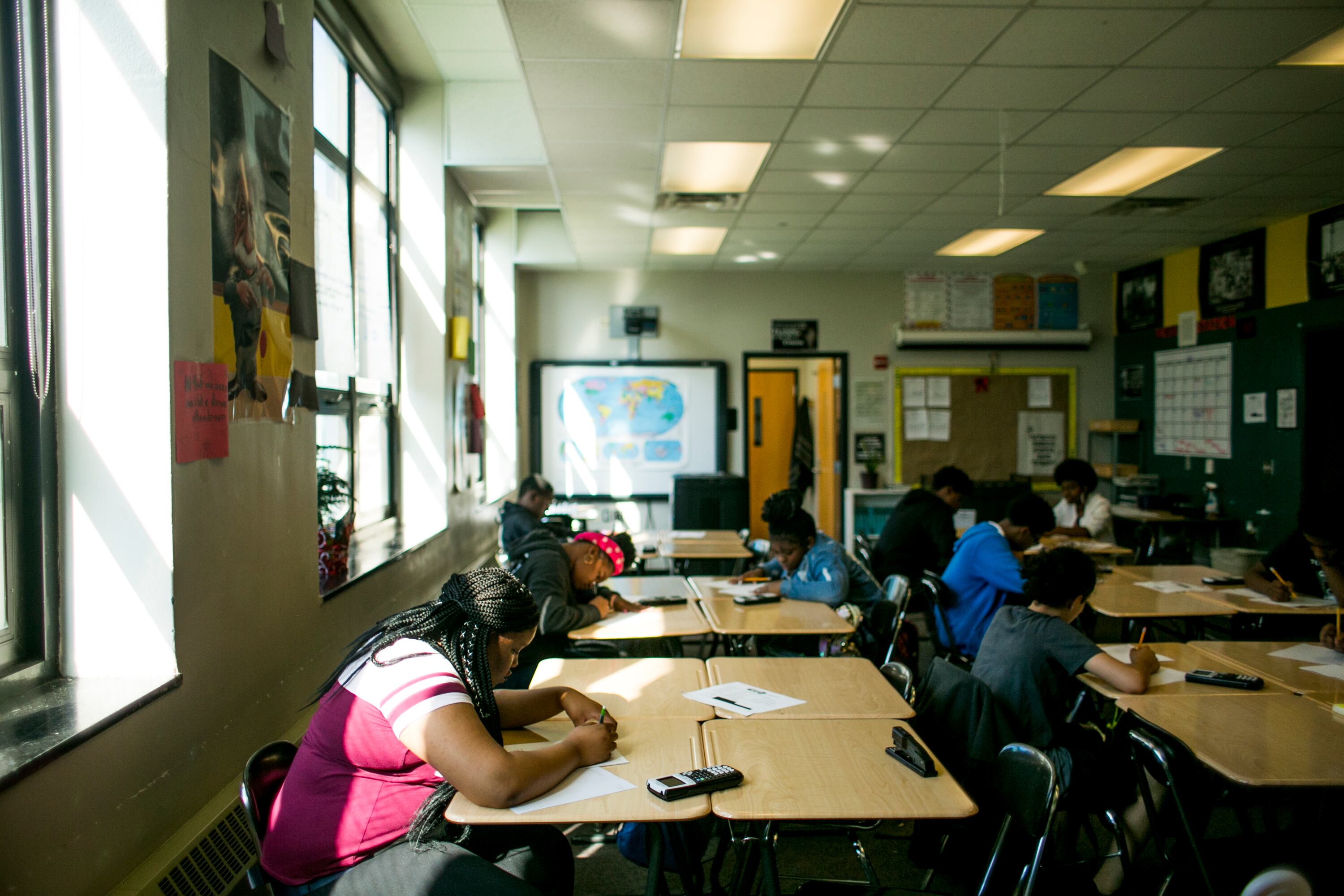There is a constitutional right to literacy, a federal court ruled on Thursday, dealing a surprise victory to the Detroit students who sued the state in 2016 over the disastrous condition of their schools.
“Just as this Court should not supplant the state’s policy judgments with its own, neither can we shrink from our obligation to recognize a right when it is foundational to our system of self-governance,” wrote Eric. L Clay, a judge on the Sixth Circuit Court of Appeals in Cincinnati. Clay was joined by another member of the three-judge panel, while the third issued a separate dissenting opinion.
“Access to literacy is such a right. It’s ubiquitous presence and evolution through our history has led the American people universally to expect it. And education — at least in the minimum form discussed here — is essential to nearly every interaction between a citizen and her government.”
The court overturned a decision from a district court in Detroit, which threw out the case because there is no federally mandated right to an education. The U.S. Supreme Court has repeatedly declined to say whether the Constitution gives every citizen a right to an education.
“It’s a historic victory for the community of Detroit that has carried on the struggle for educational justice for decades,” said Mark Rosenbaum, the lead attorney on the case for Public Counsel, a nonprofit legal firm. “There could not be a more thrilling or a more just result.”
State officials could appeal the decision, but Rosenbaum said he hoped that attorneys and Gov. Gretchen Whitmer would be able to work out a settlement.
What that settlement might look like is uncertain, especially as Michigan faces a multibillion dollar budget shortfall caused by the coronavirus. A similar lawsuit recently settled in California’s state courts brought an additional $50 million to that state’s most troubled schools, a small sum in a state education budget of tens of billions of dollars.
The right to literacy outlined in the decision could actually limit a potential settlement because it’s fairly narrow, said Kristine Bowman, a professor of law and education at Michigan State University. While literacy is important, it’s far from the only thing schools teach. She noted that few children leave even the state’s most troubled schools totally illiterate.
“Literacy is a pretty low floor,” she said. “And yet in this case, the judge said, ‘Hey, there’s a place where kids are falling through the cracks, and it’s the state’s fault.’”
A settlement could either focus exclusively on Detroit or apply more broadly to all of the state’s most troubled schools, Bowman said.
Tiffany Brown, a spokeswoman for Whitmer, said the governor’s office is still reviewing the decision. Still, she added:
“Although certain members of the State Board of Education challenged the lower court decision that students did not have a right to read, the Governor did not challenge that ruling on the merits.”
“We’ve also regularly reinforced that the governor has a strong record on education and has always believed we have a responsibility to teach every child to read.”
Detroit Superintendent Nikolai Vitti described the ruling as a victory that “validates what Detroiters have been saying all along - Detroit students deserve better and the state of Michigan needs to be held accountable to address that injustice.”
Vitti said he hopes Whitmer seeks to settle the case. The district filed a brief in support of the plaintiffs in 2018.
“It is time to move on from the false argument that DPS was not damaged at the hands of the State and more importantly, that district children and teachers were not damaged under State management,” Vitti said. “It is now time to move toward healing these historic wounds.”
The lawsuit put some elected officials in the awkward position of arguing against plaintiffs they agreed with. Even as lawyers in the Michigan Attorney General’s office defended the state against the students’ concerns, Dana Nessel, the Democratic Attorney General, attempted to file a brief on behalf of the students. A judge refused to accept the brief, saying it represented a conflict of interest. Nessel says she got the outcome she wanted, anyway.
“I am overjoyed with the Court’s decision recognizing that the Constitution guarantees a right to a basic minimum education,” Nessel said in a statement. “This recognition is the only way to guarantee that students who are required to attend school will actually have a teacher, adequate educational materials, and a physical environment that does not subject them to filth, unsafe drinking water, and physical danger.”







